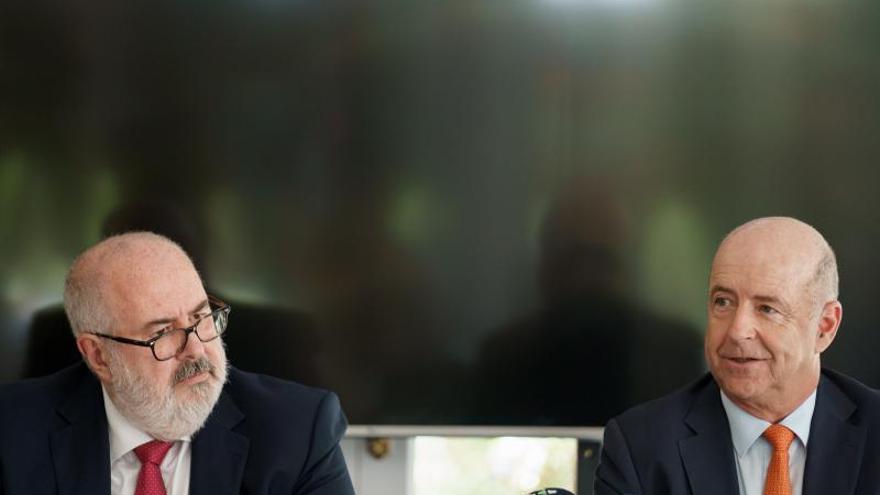
The two most representative business confederations in Canary Islands, CEOE-Tenerife and CCE, yesterday sealed a common front to work together in the search for measures to counteract economic uncertainty and try to attract investment through the REF incentives. Faced with an autumn that seems complicated – “big waves are coming and from different directions” -, the presidents of both organizations -Pedro Ortega and Pedro Alfonso, respectively-, ask to flee from the “occurrences” pre-election measures such as the limitation of prices in the shopping cart or a new increase in the minimum wage and urge the regional government to lower taxes, “at least temporarily”reduce public spending and take measures to mitigate the effects of inflation.
Pedro Alfonso, at a press conference in Santa Cruz de Tenerife, was “concerned” that the regional government will manage a budget of more than 10,000 million next year – around 25% of the GDP of the autonomous community – that continues to grow at the expense of the income of families and companies. He censures the leader of the Tenerife employers’ association that instead of working for the reduction of expenses, the Executive of the pact of the flowers bets on generating more “mandatory expenses” that later have to cover with fiscal pressure. “There are no solutions” but both families and companies, he said, continue to contribute to “a bag that has holes”, “insatiable”.
He insists on criticizing that governments take decisions unilaterally, without consensus and related to electoral interests or out of pure “idealism”, as has happened, Alfonso stresses, with taxes on electricity companies or banks “which is illegal and inappropriate.”
The president of the CEOE warns that the situation in the Canary Islands is “complicated” and that the feeling of generalized “impoverishment” is growing among families and companiesfor which it proposes, among other measures, returning to the 20 million item in the REA (Specific Supply Regime) that existed in 1995 to help make the shopping basket cheaper and incorporate new products that can benefit from subsidies to the transport arriving from Europe, something that would especially help non-capital islands.
In this sense, the employers’ leaders also demand the updating of prices in public tenders because there are companies that “lose money” with the contests. It is an obligation, they point out, after the Government “did nothing” when it was warned that container prices were rising at the beginning of the year and there were delays in deliveries.
Ortega highlights the meeting point of both confederations to work hand in hand at a delicate moment in which underlying inflation (which does not take into account energy costs and unprocessed products) is already almost at the same level in the Canary Islands as in the rest of Spain. For this reason, it calls for “clarity and firmness” from the public powers in taking economic measures to promote economic activity and consumption and not seek “headlines” such as limiting the prices of the shopping basket that Vice President Yolanda Díaz recommends, the ecotax or the rejection of digital nomads in the Islands flag Podemos.
Ortega regrets, in this sense, that both national and regional governments choose to face inflation taking into account “the consequences and not the causes.” In this regard, he claims, to mitigate the effects of the rise in costs, that prices be updated in the face of a 100% transport subsidy.
For the president of the CCE, the unity staged yesterday by the two Canarian employers is “convenient” in the face of “so much uncertainty and upheaval.”
















